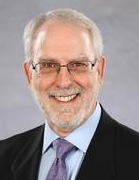Cardiovascular Disease Epidemiology & Prevention Fellowship
Cardiovascular Disease Epidemiology & Prevention Fellowship is funded by a National Institutes of Health Training Grant (T32) and located at Northwestern University Feinberg School of Medicine's downtown Chicago campus.
A key component of the program is mentored cardiovascular research. Trainees have at least two mentors, distinguished physician/scientists and basic scientists who are nationally recognized experts in their fields and have a broad range of interests, including cardiovascular disease risk estimation, health services research, global CVD, molecular epidemiology and genetic epidemiology.
Our mentors are committed to helping trainees develop their own research programs. We do this by providing hands-on experience in the design, conduct and analysis of CVD epidemiologic or prevention research. At the outset of the fellowship, trainees may work on their mentors’ projects. However, by the second year, trainees shift toward building their own unique research niche. Through these experiences fellows are expected to generate research leading to presentations and publications in peer-reviewed journals. Our training program provides opportunities for trainees to participate in grant applications and encourages them to lead stage-appropriate grant submissions.
Get to know the current fellows and alumni and primary mentors, then browse the categories below to learn more about the program.
Program Leadership
Program Details
Eligibility
At the time of appointment, applicants must have a doctoral degree. MD candidates must have an interest in pursuing a research career in cardiovascular medicine or a related clinical field. PhD applicants should have degrees in the fields of epidemiology, biostatistics, nutrition or other relevant areas. The applicant must be eligible to work in the United States (citizen or permanent resident) at the time of application.
Duration
Fellows are typically appointed for two or three years.
Stipend & Benefits
Effective with all Kirschstein-NRSA awards made on or after October 1, 2023, the following annual stipend levels apply to all individuals receiving support through institutional research training grants or individual fellowships. These awards are made under the authority of Section 487 of the Public Health Service Act, as amended.
Stipend Levels for FY24
| Years of Experience | Stipend for FY 2024 |
Monthly Stipend |
|---|---|---|
|
0 |
$61,008 |
$5,084 |
|
1 |
$61,428 |
$5,119 |
|
2 |
$61,884 |
$5,157 |
|
3 |
$64,356 |
$5,363 |
|
4 |
$66,492 |
$5,541 |
|
5 |
$68,964 |
$5,747 |
|
6 |
$71,532 |
$5,961 |
|
7 or More |
$74,088 |
$6,174 |
Tuition, books, fees, a professional travel allowance and certain other research-related expenses are covered by the program. All postdoctoral fellows receive health insurance benefits through Northwestern University.
How to Apply
Interested candidates should email carnethon@northwestern.edu for program inquiries.
Applications are currently being accepted on a rolling basis until all spots are filled. Priority will be given to applications submitted by January of the year the candidate is seeking employment in. You can submit an application by filling out this form.
Trainee Activities
Individual Development Plan
At the start of the fellowship, we assist each fellow in developing an individual development plan in collaboration with their faculty mentors. After the initial meetings between the trainee and the faculty mentor assigned as the primary career mentor to develop the educational plan, they meet at regular intervals — usually monthly — to ensure timely progress toward meeting these objectives.
Training & Coursework
Formal training typically involves the equivalent of one year of didactic coursework in the theoretical and methodologic aspects of research. The availability of a wide range of courses and seminars in epidemiology, biostatistics, cardiovascular medicine, research ethics, scientific writing and peer review permits individual tailoring of the formal training element of the program. All trainees have the opportunity to complete a master's degree program in public health or clinical investigation.
This training program accepts both MD and PhD trainees. As part of the training program, we actively promote meaningful interactions between MD and PhD trainees. Clinical health professionals are in a unique position to gain skills from this intensive research training that will place them in a better position to apply for and receive future research grant support, an essential component of a career in academic medicine. PhD fellows are encouraged to take courses that would enhance their research experience and further promote their research agenda.
In addition to didactic training, fellows are encouraged to participate in an extramural training experience such as the two-week long American Heart Association/National Heart Lung and Blood Institute Summer Training Course in Cardiovascular Epidemiology. Attendance and participation at national meetings is supported by the training grant. The American Heart Association Council on Epidemiology and Prevention sponsors a half-day session at its annual meeting devoted to the presentation of work from current NRSA trainees. Where funds permit, trainees are encouraged to participate in at least one other national meeting of their choosing. Through participation in national meetings, trainees are exposed to work in progress by other scientists in the field and are able to make professional contacts.
Professional development activities, both formal and informal, are an integral component of the training program. Participation in career development activities is individualized. In general, fellows will be encouraged to attend university-sponsored seminars on such topics as academic job search strategies, pathways to successful careers in academic medicine (targeted to clinicians), promotion and tenure and concerns of women in academic medicine.
Fellows are required to attend weekly research-in-progress meetings and departmental cardiovascular research meetings. A journal club is held monthly.
The combination of mentoring, formal coursework, seminars and participation in ongoing research is designed to provide the most useful training experience for each individual fellow.
Required Activities
- Weekly research-in-progress meeting
- Weekly Cardiovascular Epidemiology Series
- Monthly Cardiovascular Epidemiology Journal Club
- Monthly career development seminar
Additional Opportunities
- Monthly Northwestern University Clinical and Transitional Sciences Institute (NUCATS) Seminar on Navigating the Research Enterprise
- Monthly NUCATS Seminar on Evolving the Translational Research Career
- NUCATS Grant Writers Groups
- Weekly Institute for Public Health and Medicine Seminar Series
- Cardiology Grand Rounds

